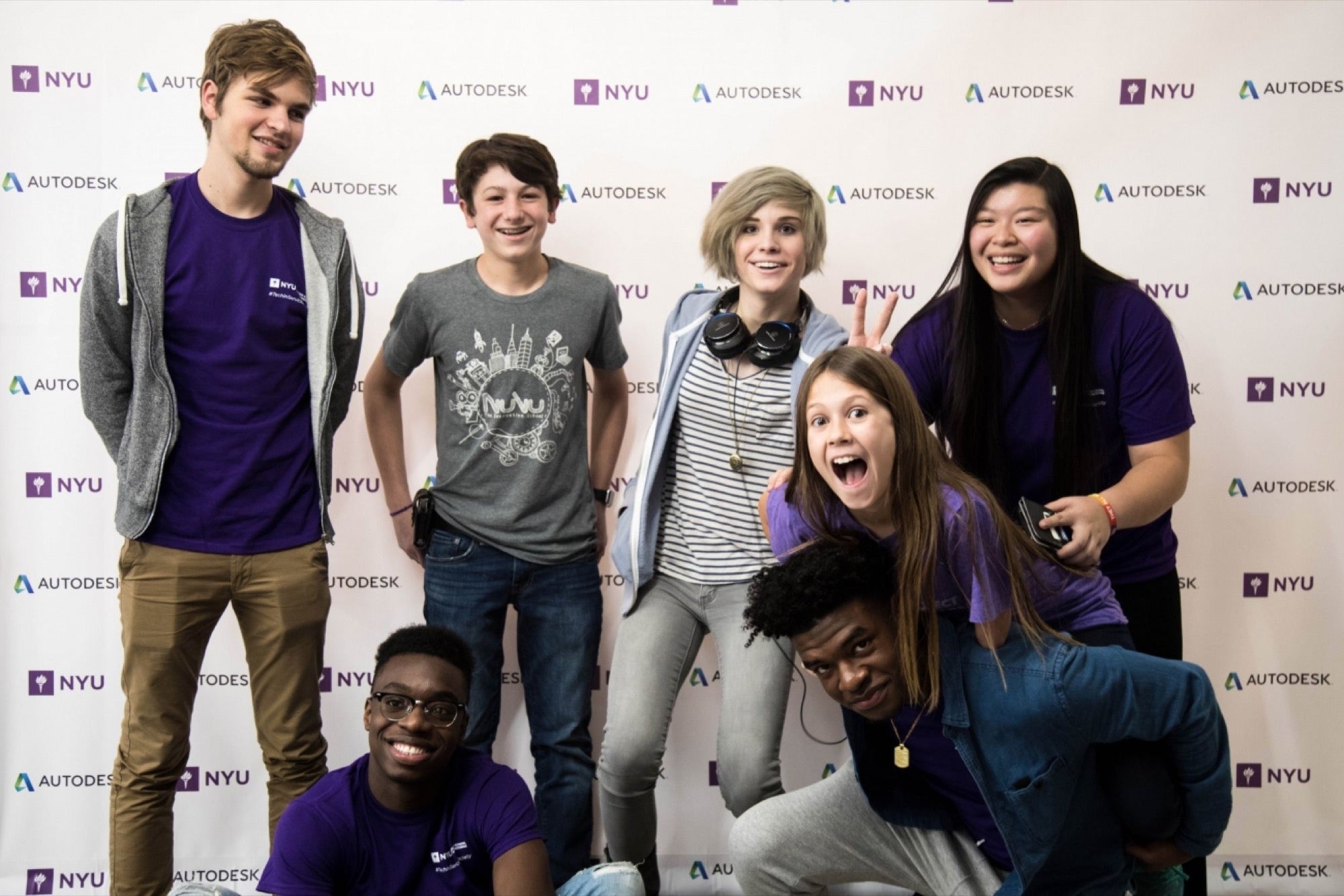These Kid Inventors Get What Many Grown Up Entrepreneurs Don't You shouldn't let failure stand in your way.
By Nina Zipkin

I don't know what you were doing when you were 14, but it probably wasn't signing a licensing deal to get your product into big name retailers such as Barnes and Noble and Target.
But that is the case for Jakob Sperry, who along with six other young inventors recently presented their work at New York University's Tandon School of Engineering as part of Kid Inventor's Day, an event hosted by 3-D design and engineering software maker Autodesk.

Related: 6 Ways to Help Your Kid Start a Business and Learn About Life
Sperry is the inventor of GyRings, a line of fidget toys. Sperry has ADHD, and when he was 12 he came up with the widgets as a way to help him and others focus in the classroom and other social settings.
Eleven-year-old Jordan Reeves is the creator of Project Unicorn, a prosthetic, 3-D printed arm that shoots glitter. Reeves said one of the biggest lessons she's learned from the experience thus far is, "if you don't fail, there is something wrong."

Related: Meet Your Future Boss: The Elementary Schoolers Taking Over YouTube
Alexis Lewis may be a 17-year-old high school senior, but she is already a serial inventor. After reading about the 2011 famine in Somalia, she created the Rescue Travois, a simple and inexpensive transportation device to help families travel safely across inhospitable terrain.

She also developed the Emergency Mask (EM) Pod to help reduce the risk of smoke inhalation for first responders and an Inventing 101 syllabus for middle school students. "Invention is intuitive," she says. "It is something that everyone can do. It's human."
Related: How This Teenager Turned Her Childhood Hobby Into a Global Business
A quartet of Brooklyn 17-year-olds, Abichael Michel, Victor Shahov, Caitlin Tsang and Jordan Pericles, created an interactive mirror called I Motivate You (IMU).

A deceptively simple looking device assembled from an LCD display, a mirror, an ultrasonic sensor and 3-D printed case, when the user looks into the mirror, the closer they get, the more affirming and positive messages they see in front of them. The team had a small prototype, but they said they wanted to see IMU installed in community spaces such as school lobbies.
Related: 11 Successful Kid Entrepreneurs Keeping Their Eyes on the Prize
Sarah O'Rourke, Autodesk's youth audience strategist, says that these young inventors understand what so many adults forget about innovation -- not to let the perfect be the enemy of the good.
"It's important to try and try to fail," O'Rourke told Entrepreneur. "If you don't, you never know. Things don't have to be perfect. If something isn't innate, people often give up. Push down those shackles. The key part is just to keep trying."










